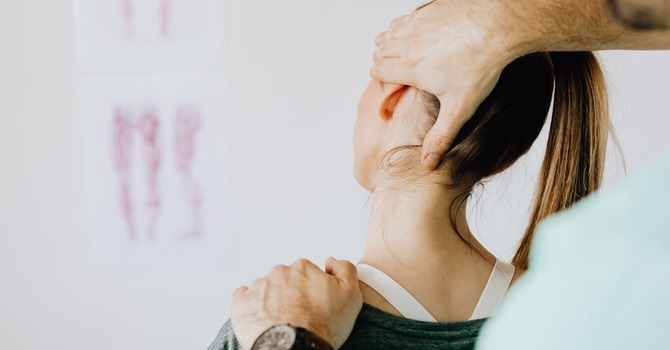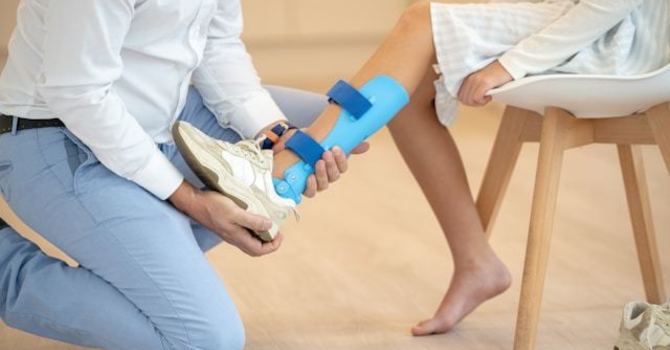
How Everyday Movement Patterns Influence Long-Term Comfort
Many physical discomforts start with small movement habits that go unnoticed like leaning into a screen, standing unevenly, or sitting without back support. Over time, these patterns can gradually shift how the body moves and feels. The tension doesn't always begin with a major event; it often builds through repetition and lack of variation in daily posture.
As these movement behaviors become part of a person's routine, they may affect joint function, muscle coordination, and overall balance. This is where Physiotherapy in Whitemud Crossing provides clarity. Through observation and guided movement strategies, individuals learn how to adjust these patterns in ways that support greater physical ease across everyday activities.
Why Posture Issues Are So Common Today
Changes in how people work, commute, and spend their free time have made posture concerns more frequent. Sedentary lifestyles, screen-based work environments, and ergonomic mismatches often lead to movement imbalances. Many posture mistakes develop over time, without noticeable symptoms until discomfort sets in.
Physiotherapists are trained to detect these subtle but impactful patterns. Whether it’s a tilted pelvis, slouched shoulders, or a stiff neck, Physiotherapy in Whitemud Crossing offers insight and movement-based care that helps address posture-related discomfort before it escalates.
How Physiotherapy in Whitemud Crossing Helps Correct Posture
Physiotherapy uses a combination of clinical assessment, education, manual therapy, and exercise-based interventions. By identifying specific posture-related habits and the muscle imbalances behind them, a physiotherapist develops a personalized plan to improve alignment and reduce strain on the body.
Many clients experience improvement not just in their posture, but in related symptoms like back pain, headaches, joint stiffness, or muscle fatigue. This form of care is adaptable for all ages and activity levels, making Physiotherapy in Whitemud Crossing a practical choice for those looking to improve how their body moves and feels throughout the day. Below are 13 posture mistakes that are commonly addressed through physiotherapy.
1. Slouching While Sitting
This habit rounds the back and puts pressure on spinal discs, especially in the lower back. Over time, it contributes to fatigue and discomfort. Physiotherapists offer exercises and cueing strategies to help maintain upright, neutral spinal positioning.
2. Forward Head Posture
Looking down at phones or leaning toward a screen shifts the head forward. This overloads the neck and upper back muscles. Physiotherapy in Whitemud Crossing focuses on realigning the cervical spine and improving neck support muscles.
3. Rounded Shoulders
Often tied to tight chest muscles and weak upper back muscles, this posture is common in those who sit for long periods. Postural taping and strengthening routines are part of the correction approach.
4. Anterior Pelvic Tilt
An arched lower back and forward-tilted pelvis create strain in the lumbar spine. Treatment includes core strengthening and hip flexibility work.
5. Standing With Locked Knees
Locking the knees while standing reduces natural shock absorption. It can lead to lower body discomfort and circulation issues. Postural retraining helps develop awareness of joint positioning.
6. Shifting Weight to One Side
Standing with weight primarily on one leg causes muscular imbalances. It can lead to hip and lower back issues. Physiotherapy in Whitemud Crossing addresses this through balance drills and alignment exercises.
7. Cradling the Phone
Tilting the head to hold a phone between the shoulder and ear leads to asymmetrical tension in the neck. A physiotherapist can recommend alternatives and treat associated muscular stress.
8. Poor Desk Setup
Incorrect desk height, screen position, or chair support contributes to cumulative strain on posture. Physiotherapists often provide ergonomic assessments to prevent workplace-related posture issues.
9. Tech Neck
Frequent phone or tablet use causes people to look down excessively, resulting in neck strain. Correction includes movement education, mobility work, and muscle strengthening.
10. Driving with Poor Back Support
Many drivers lean or slump in the seat. This reduces spinal alignment and hip support. Physiotherapy in Whitemud Crossing includes strategies to set up better seat posture and lumbar support for driving.
11. Improper Lifting Technique
Bending at the back rather than the knees is a major cause of injury. Physiotherapists teach body-safe lifting mechanics that reduce the risk of lower back issues.
12. Unsupportive Footwear
Footwear that lacks arch support can lead to posture problems that travel up the body. Gait assessments and orthotic advice are commonly part of care plans.
13. Breath Holding During Movement
Holding your breath while moving or lifting can increase tension and reduce core stability. Physiotherapists teach functional breathing patterns to support posture during everyday tasks.
When Should You See a Physiotherapist for Posture?
It’s not necessary to wait until pain becomes severe. Signs that posture might be affecting your health include:
- Frequent muscle tightness or fatigue
- Recurring headaches or neck stiffness
- Discomfort while sitting or standing for extended periods
- Uneven wear on shoes or discomfort when walking
- Comments from others about how you sit, stand, or move
Addressing these early can prevent more significant mobility limitations. With Physiotherapy in Whitemud Crossing, individuals gain awareness of their posture patterns and learn how to adjust them with practical strategies.
What a Posture-Focused Session Includes
A typical posture-focused session may involve:
- Initial Assessment: Analysis of sitting, standing, and movement habits
- Mobility Testing: Checking flexibility and joint range of motion
- Muscle Activation Work: Identifying underused or overused muscles
- Corrective Exercises: Specific drills to improve alignment and strength
- Functional Movement Training: Guidance on posture during real-world tasks
- Education: Tools, visuals, or feedback to improve self-awareness
These elements work together to improve not just how the body looks in posture, but how it performs under stress, during movement, and over time.
Moving Forward
Posture isn’t about keeping your back perfectly straight it’s about helping your body move efficiently and comfortably. Many posture mistakes are so common they go unnoticed, but their impact builds gradually. With awareness, guidance, and consistent care, these issues can be addressed effectively.
For individuals experiencing posture-related discomfort or looking to move with more confidence, Physiotherapy in Whitemud Crossing offers tailored approaches that can help. Clinics like Therapointe Physiotherapy provide assessments and movement plans to support healthier alignment across daily life.

admin
Contact Me



